
Is There a Gut-Skin Connection? How to Improve Both?
We often hear that true beauty comes from within, but did you know that the gut-skin connection significantly impacts your skin’s appearance? Initially, I was skeptical of this connection, but experiencing the transformation firsthand was truly eye-opening.
Our bodies are intricately interconnected, and the relationship between the gut and skin is a prime example. This connection plays a key role in overall health, as highlighted by Renata Block, MMS, PA-C, who emphasized how a balanced microbiome can positively influence both gut and skin health.
I learned that poor dietary habits and excessive antibiotic use can disrupt the gut-skin connection, potentially causing skin problems such as eczema and acne.
Adopting a nutritious diet and a healthy lifestyle can significantly improve both gut and skin health. The key is understanding and nurturing the gut-skin connection to achieve radiant skin from the inside out. Let’s explore this fascinating connection and discover how enhancing your gut health can produce a glowing complexion.
Key Takeaways
- The gut-skin connection is a scientifically supported phenomenon that affects overall health.
- A balanced gut microbiome can improve skin health, reducing conditions like eczema and acne.
- Modern lifestyle habits, such as consuming processed foods and overusing antibiotics, can disrupt gut health.
- Prebiotics and probiotics are essential for maintaining a healthy gut microbiome.
- Supporting gut health through dietary and lifestyle changes can improve skin conditions.
Understanding the Gut-Skin Connection
The link between gut health and skin is essential. Known as the gut-skin axis, this theory explains how an imbalanced microbiome can cause increased skin inflammation and various skin conditions. Studies show that maintaining gut health can reduce skin inflammation and strengthen immunity. Additionally, gut health plays a vital role in skin care, not only by protecting the skin from harmful pathogens but also by aiding nutrient absorption and boosting the immune system.
What is the Gut-Skin Axis?
The gut-skin axis connects the digestive system to skin health and is part of the broader gut-brain-skin connection. The gut microbiome, made up of trillions of bacteria, plays a significant role in maintaining the health of our skin.
For example, short-chain fatty acids with anti-inflammatory properties produced in the gut are vital for supporting skin health. These fatty acids affect the growth and development of skin cells. Additionally, GABA produced in the gut can help relieve skin itching, while serotonin, primarily produced in the gut, helps regulate skin inflammation.
Role of the microbiome in skin health
How the Gut-Skin Connection Affects Skin Conditions
The connection between gut health and skin is gaining more attention. Studies reveal that gut imbalances can impact skin health, and when the gut and skin are out of sync, overall well-being can decline.
The impact of a disrupted gut microbiota
A disrupted gut-skin connection can result in multiple health issues. For instance, an imbalance in the gut microbiota can raise the risk of skin conditions such as acne, psoriasis, and eczema. Research indicates that individuals with acne often possess gut bacteria that differ from those with clear skin, underscoring the significance of the gut-skin connection.
Inflammatory conditions in the gut can trigger skin reactions through the gut-skin connection. This includes leaky gut syndrome, which is strongly linked to conditions like eczema, further illustrating how a weakened gut-skin connection can affect skin health.
Common Skin Issues Linked to a Disrupted Gut-Skin Connection
Several common skin conditions are associated with a disrupted gut-skin connection. For example, gut imbalances can aggravate atopic dermatitis, leading to heightened inflammation.
Studies show that children with eczema have distinct gut bacteria, highlighting the role of the gut-skin connection in influencing skin conditions.
Similarly, numerous studies have confirmed that individuals with psoriasis have gut bacteria that differ from healthy individuals. This emphasizes the importance of maintaining a balanced gut-skin connection to support overall skin health.
| Skin Condition | Gut Microbiota Alterations | Study References |
|---|---|---|
| Acne Vulgaris | Distinct gut microbiota compared to healthy controls | Deng et al., 2018 |
| Moderate to Severe Acne | Altered gut microbiota | Yan et al., 2018 |
| Atopic Dermatitis | Metabolic functional roles distinct from healthy infants | Kingkaw et al., 2020 |
| Psoriasis | Different fecal microbiota structure | Codoñer et al., 2018; Shapiro et al., 2019 |
Signs of an Unhealthy Gut
Recognizing the signs of gut imbalance is crucial for maintaining health. An unhealthy gut presents various symptoms, affecting not only digestion but also contributing to chronic fatigue and skin issues.
Digestive symptoms
Digestive problems often indicate poor gut health. Approximately 70 million Americans suffer from digestive diseases annually, including conditions like irritable bowel syndrome (IBS) and gastroesophageal reflux disease (GERD).
Around 20% of people experience food intolerances, leading to poor digestion, bloating, and stomach discomfort. Gut imbalances also play a role in the development of inflammatory bowel diseases and other chronic conditions.
Fatigue and weight changes
Gut health is strongly connected to chronic fatigue. Many individuals with chronic fatigue also suffer from IBS, demonstrating the critical role of gut health in energy levels. The diversity of gut bacteria influences metabolism and weight, potentially leading to weight gain or loss.
Gut disturbances can contribute to metabolic disorders, often resulting in unexpected fluctuations in weight.
Skin irritations
The connection between gut and skin health is becoming increasingly clear. Specifically, poor gut health can lead to conditions like acne, rosacea, and other skin problems. Additionally, certain foods can disrupt the balance of gut bacteria, triggering various skin issues.
The gut microbiome, which consists of approximately 100 trillion microorganisms, plays a pivotal role in skin health. As a result, an imbalanced gut can manifest as skin irritations, signaling potential internal problems.
Benefits of a Healthy Gut-Skin Connection
The connection between our gut and skin is essential to feeling great. Notably, our gut is home to over 100 trillion bacteria, which regulate our immune system and influence how our body responds, ultimately affecting our skin’s health.
When our gut bacteria become imbalanced, it can lead to a leaky gut, allowing harmful substances into the bloodstream. This imbalance often results in skin problems such as acne, eczema, and psoriasis. In contrast, a healthy gut can help prevent these skin issues, highlighting the benefits of the gut-skin axis.
Additionally, research has shown a clear link between gut problems and specific skin conditions. For instance, people with rosacea often experience more gut issues, and similarly, individuals with bowel problems may develop psoriasis. This demonstrates how a disrupted gut can exacerbate skin conditions.
Moreover, maintaining a proper diet can help restore gut balance, leading to healthier skin. For example, many people have successfully treated acne with probiotics. Additionally, incorporating foods like kefir, kimchi, and yogurt into the diet can have positive effects on gut and skin health.
On the other hand, stress can disrupt gut balance and trigger skin issues. Therefore, managing stress and consuming fiber-rich foods are essential. Foods like bananas, onions, and garlic are particularly beneficial. Staying hydrated and incorporating omega-3s into the diet is also crucial for maintaining both gut and skin health.
Ultimately, taking care of your gut health can result in clearer, more radiant skin, demonstrating the powerful benefits of the gut-skin connection.
Improving Gut Health Through Diet
Eating right is key to maintaining good health and achieving radiant skin. A diverse gut microbiome helps combat diseases such as diabetes and various skin conditions. By selecting the right foods, we support gut health, which in turn improves the appearance of our skin.
The Role of Fiber-Rich Foods in the Gut-Skin Connection
Fiber is essential for gut health. Foods high in fiber, like beans, whole grains, vegetables, nuts, and fruits, promote the growth of beneficial bacteria in the gut. This helps alleviate bloating, discomfort, and enhances nutrient absorption.
A fiber-rich diet also supports regular digestion and helps prevent gut-related issues.
Benefits of Prebiotics for the Gut-Skin Connection
Prebiotics nourish the good bacteria in our gut, strengthen the gut lining, and reduce inflammation. For example, foods like garlic, onions, and bananas are rich in prebiotics. As a result, they improve gut health and diversity, positively affecting our mood, immune system, and stress levels.
Likewise, probiotics are highly beneficial for gut health. They increase the population of good bacteria while reducing harmful ones. Foods such as yogurt, kefir, and sauerkraut are excellent sources of probiotics. Consequently, they aid in digestion and weight management and alleviate skin issues like acne by regulating inflammation in the body.
Thus, a diet high in fiber, prebiotics, and probiotics is essential for a healthier gut. A balanced gut, in turn, leads to healthier, more vibrant skin. Including these beneficial foods in our diet can ultimately enhance our overall quality of life.
Incorporating Lifestyle Changes for Gut-Skin Health
Lifestyle changes can significantly improve gut health, boosting overall well-being and skin appearance. It’s important to understand how daily habits impact the gut microbiome. Adopting a holistic approach to wellness includes recognizing the importance of regular exercise and quality sleep in maintaining a healthy gut.
Importance of Regular Exercise
Exercise is not just for staying physically fit but also for maintaining gut health. Physical activity improves the gut microbiome by increasing the diversity of bacteria. Additionally, exercise helps reduce inflammation and strengthens the immune system.
Incorporating regular exercise into your routine benefits both the digestive system and skin health. This highlights how impactful lifestyle changes can be for enhancing gut health.

Exercise also helps blood flow, which benefits skin health. Activities like brisk walking, running, or simple yoga can positively influence both gut and skin. Developing a consistent exercise routine is a significant step toward improving gut health.
Significance of Adequate Sleep
Getting enough sleep is crucial for maintaining gut health. A lack of sleep disrupts the body’s defenses and the balance of gut microbes, leading to potential gut and skin issues. A regular sleep routine and a peaceful sleep environment are essential for supporting the gut microbiome.
Insufficient sleep disturbs the gut’s microbial balance, while quality sleep regulates the body’s natural cycles, benefiting both gut and skin health. Incorporating sufficient sleep into your daily routine is vital for nurturing a healthy gut microbiome.
Adopting these lifestyle changes can improve gut health and overall well-being. Regular exercise and proper sleep habits promote a healthier gut and clearer skin.
Conclusion
The gut-skin connection is essential for overall health. The gut-skin axis plays a key role in this relationship, with research indicating that 70 to 80 percent of the immune system is housed in the gut.
A disrupted gut-skin connection can cause various skin issues, such as acne and eczema, highlighting the close link between gut and skin health. Adopting a lifestyle that supports both is critical. This involves consuming fiber-rich foods, probiotics, and prebiotics, which help maintain a balanced gut-skin connection. Additionally, managing stress and ensuring sufficient sleep are necessary for a balanced gut-skin axis. Research shows that probiotics can improve acne, and a fiber-rich diet of fruits and vegetables can enhance skin health.
FAQ
Q: Can gut health impact my skin, and how can I improve both?
A: Gut health plays a significant role in skin health. A well-balanced gut can improve your skin’s appearance. Eating foods rich in fiber, prebiotics, and probiotics is beneficial. Additionally, regular exercise and sufficient sleep can enhance both gut and skin health.
Q: What is the gut-skin axis?
A: The gut-skin axis illustrates the connection between gut and skin health. It explains how issues in your gut can manifest as skin problems, potentially leading to conditions such as inflammation.
Q: What is the role of the microbiome in skin health?
A: The microbiome is essential for maintaining healthy skin. It combats harmful bacteria, aids nutrient absorption, and supports the immune system. A healthy gut enhances the skin’s ability to fight problems and remain resilient.
Q: What is the impact of a disrupted gut microbiota?
A: A disrupted gut can increase inflammation in the body, potentially causing skin issues like acne, psoriasis, and eczema. This highlights the strong link between gut health and skin conditions.
Q: What are common skin issues linked to poor gut health?
A: Poor gut health can lead to skin problems such as eczema, psoriasis, vitiligo, and acne. These conditions often result from an imbalanced gut and heightened inflammatory responses.
Q: What are the digestive symptoms of poor gut health?
A: Symptoms of poor gut health include bloating, gas, constipation, diarrhea, and stomach pain. These signs indicate that your gut may be out of balance.
Q: How are fatigue and weight changes related to gut health?
A: If you’re constantly tired or experiencing unexplained weight changes, it could be due to gut issues. An unhealthy gut affects nutrient absorption and energy levels, potentially causing these symptoms.
Q: Can skin irritations indicate an unhealthy gut?
A: Yes, skin problems such as breakouts, rashes, and eczema can indicate underlying gut issues. These irritations often stem from internal imbalances within the gut.
Q: What are the benefits of a healthy gut-skin axis?
A: A healthy gut-skin connection can reduce skin inflammation and prevent breakouts. A balanced gut often results in clearer, more vibrant skin, which supports immune function and nutrient absorption.
Q: How can I maintain healthy skin through gut health?
A: Maintaining healthy skin starts with taking care of your gut. Eat a diet rich in fiber, prebiotics, and probiotics. Regular exercise and proper sleep also contribute to a balanced gut, promoting skin health.
Q: What is the role of fiber-rich foods in gut health?
A: Fiber-rich foods promote gut health by supporting the growth of beneficial bacteria in the gut microbiome. This aids in maintaining a healthy digestive system and proper gut function.
Q: What are the benefits of prebiotics?
A: Prebiotics nourish the good bacteria in your gut. They help maintain the integrity of the gut barrier, improve overall gut health, and positively affect skin by reducing inflammation.
Q: What are the benefits of probiotics?
A: Probiotics enhance the good bacteria in your gut, keeping it balanced. They help strengthen the gut barrier, reduce inflammation, and improve digestion, all contributing to healthier skin.
Q: What is the importance of regular exercise for gut health?
A: Exercise is crucial for gut health. It helps balance the gut microbiome, reduces inflammation, and supports overall digestive function
Q: What is the significance of adequate sleep for gut health?
A: Sufficient sleep is vital for gut health, as it helps maintain a stable gut microbiome. Good sleep supports immune function and contributes to a healthy gut.
Source Links
Research on Gut-Skin Axis and Microbial Dysbiosis
- Gut–Skin Axis: Current Knowledge of the Interrelationship between Microbial Dysbiosis and Skin Conditions
- Impact of gut microbiome on skin health: gut-skin axis observed through the lenses of therapeutics and skin diseases
- The role of gut microbiome in inflammatory skin disorders: A systematic review
Understanding the Gut-Skin Connection
- Gut Health and Skin: Understanding The Gut-Skin Connection
- Gut Check for Glowing Skin: the Gut-Skin Connection
- Glowing from Within: How Your Gut Microbiome Health Affects Your Skin
- The Gut-Skin Connection: How to Glow From Inside Out
- The Gut-Skin Glow Connection Dermatology
- Gut Health and Its Impact on the Skin
- Exploring the Gut-Skin Connection
- The Connection Between Gut Health & The Skin
Expert Opinions and Research
- You’ve heard of the gut-brain connection, but what about the gut-skin connection? Here’s what experts say
- The gut microbiome in skin disease
















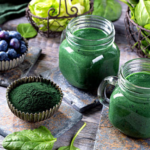
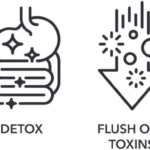




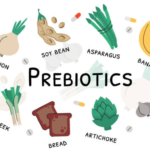
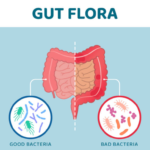










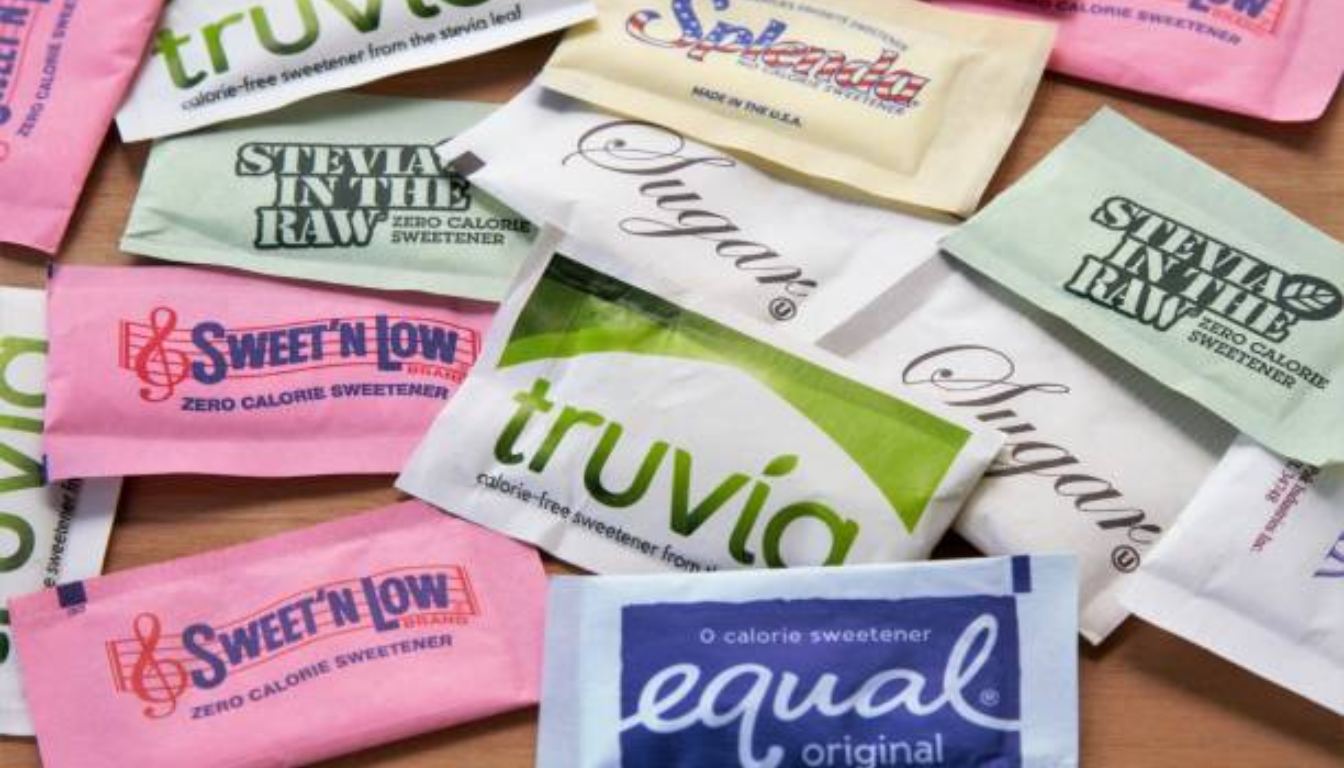










Post Comment